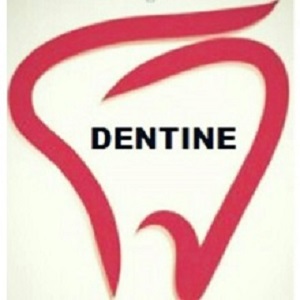 A novel, biological approach to dentine restoration via the mobilisation of resident stem cells in the tooth pulp, has been developed at King's College London. Lead author of the study, Professor Paul Sharpe, said: “The simplicity of our approach makes it ideal as a clinical dental product. In addition, using a drug that has already been tested in clinical trials provides a real opportunity to get this dental treatment quickly into clinics.”
A novel, biological approach to dentine restoration via the mobilisation of resident stem cells in the tooth pulp, has been developed at King's College London. Lead author of the study, Professor Paul Sharpe, said: “The simplicity of our approach makes it ideal as a clinical dental product. In addition, using a drug that has already been tested in clinical trials provides a real opportunity to get this dental treatment quickly into clinics.”
Following trauma or an infection, the inner, soft pulp of a tooth can become exposed and infected. In order to protect the tooth from infection, a thin band of dentine is naturally produced and this seals the tooth pulp, but it is insufficient to effectively repair large cavities.
Currently dentists use man-made cements or fillings, such as calcium and silicon-based products, to treat these larger cavities and fill holes in teeth. This cement remains in the tooth and fails to disintegrate, meaning that the normal mineral level of the tooth is never completely restored.
However, scientists from the Dental Institute at King’s College London have proven a way to stimulate the stem cells contained in the pulp of the tooth and generate new dentine – the mineralised material that protects the tooth – in large cavities, potentially reducing the need for fillings or cements.
The novel, biological approach could see teeth use their natural ability to repair large cavities rather than using cements or fillings, which are prone to infections and often need replacing a number of times. Indeed when fillings fail or infection occurs, dentists have to remove and fill an area that is larger than what is affected, and after multiple treatments the tooth may eventually need to be extracted. As this new method encourages natural tooth repair, it could eliminate all of these issues, providing a more natural solution for patients.
Significantly, one of the small molecules used by the team to stimulate the renewal of the stem cells included Tideglusib, which has previously been used in clinical trials to treat neurological disorders including Alzheimer’s disease. This presents a real opportunity to fast-track the treatment into practice.
Using biodegradable collagen sponges to deliver the treatment, the team applied low doses of small molecule glycogen synthase kinase (GSK-3) inhibitors to the tooth. They found that the sponge degraded over time and that new dentine replaced it, leading to complete, natural repair. Collagen sponges are commercially-available and clinically-approved, again adding to the potential of the treatment’s swift pick-up and use in dental clinics.
Lead author of the study, Professor Paul Sharpe from King’s College London said: “The simplicity of our approach makes it ideal as a clinical dental product for the natural treatment of large cavities, by providing both pulp protection and restoring dentine. In addition, using a drug that has already been tested in clinical trials for Alzheimer’s disease provides a real opportunity to get this dental treatment quickly into clinics.”
Abstract
The restoration of dentine lost in deep caries lesions in teeth is a routine and common treatment that involves the use of inorganic cements based on calcium or silicon-based mineral aggregates. Such cements remain in the tooth and fail to degrade and thus normal mineral volume is never completely restored. Here we describe a novel, biological approach to dentine restoration that stimulates the natural formation of reparative dentine via the mobilisation of resident stem cells in the tooth pulp. Biodegradable, clinically-approved collagen sponges are used to deliver low doses of small molecule glycogen synthase kinase (GSK-3) antagonists that promote the natural processes of reparative dentine formation to completely restore dentine. Since the carrier sponge is degraded over time, dentine replaces the degraded sponge leading to a complete, effective natural repair. This simple, rapid natural tooth repair process could thus potentially provide a new approach to clinical tooth restoration.
Authors
Vitor CM Neves, Rebecca Babb, Dhivya Chandrasekaran, Paul T Sharpe
[link url="http://www.kcl.ac.uk/newsevents/news/newsrecords/2017/01-January/Natural-tooth-repair-method-using-Alzheimer's-drug-could-revolutionise-dental-treatments.aspx"]Kings College London material[/link]
[link url="http://www.nature.com/articles/srep39654"]Scientific Reports abstract[/link]
